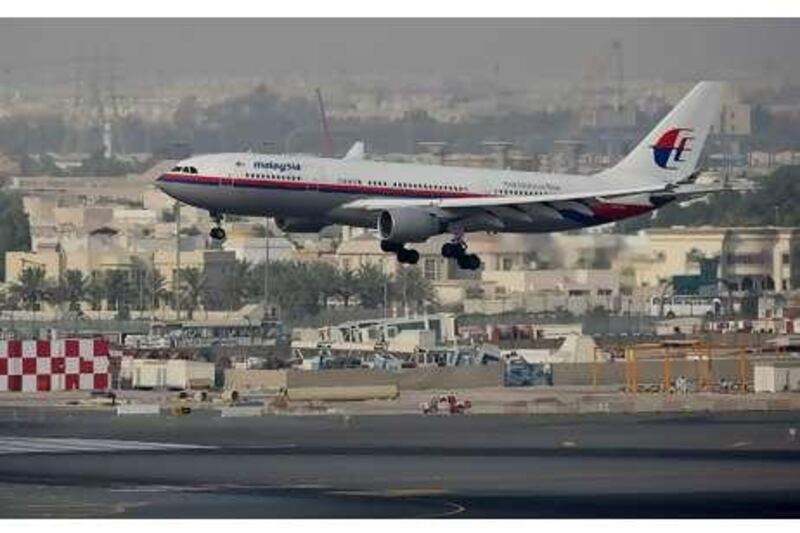ABU DHABI // The UAE's airports are too close to major residential areas, subjecting people to excess noise and pollution, members of the Federal National Council said yesterday. "For example, Abu Dhabi International Airport is 35km away from the city, while Dubai airport is only 4km away from the city," said Sultan Saqr al Suweidi, an FNC member from Dubai.
This resulted in a lot of sound and air pollution and put residents in danger, he said, especially as many of the country's airports were still popular with airlines flying relatively old fleets. "Why don't the airline companies use planes with alternative fuel?" he asked. Sultan al Mansouri, the Minister of Economy and chairman of the General Civil Aviation Authority (GCAA), said an experiment had been conducted on a number of planes using alternative fuel last year.
However, such technologies were unlikely to enter mainstream use for at least another decade, he said. "I agree that noise pollution is a problem," Mr al Mansouri told the FNC meeting. "Even Sheikh Hamdan [bin Rashid] complained that he can hear the noise of the planes at his palace in Za'abeel. But, worldwide, the UAE has the least level of air and sound pollution." FNC members complained about the conflict of responsibility between the GCAA, a federal authority, and the local airports and departments in each emirate.
Ruwaya Saif al Samahi, a member from Fujairah, said in reality the local departments had higher executive authority than the GCAA, but did not always abide by international safety and environmental standards. Moreover, there is no decree of implementation to the civil aviation law, even though the authority has existed since 1996. "For example, when the Sudanese airplane crashed at Sharjah airport, there was no co-ordination between the parties as to who should give statements," said Ali al Matroushi, a member from Ajman.
"Nobody from the authority gave statements, and a random engineer from the airport staff was the one who spoke. We still don't know what exactly happened." Mr al Mansouri said a new law was being drafted to replace the 1991 civil aviation law. It would aim to clarify the roles of the various authorities. "One of the major problems that always threw us back in the previous law was the issue of co-ordination," he said.
Local departments took advantage of the fact that the law said the GCAA should co-ordinate with them on everything, he added. Saif al Suweidi, the general manager of the GCAA, said there were instances in which airports denied the authority access for police investigations or to inspect foreign airlines. The authority is preparing a blacklist of foreign airline operators that do not meet federal standards, which will be prohibited from entering the UAE. Fifty-six companies are already banned from operating in the UAE, in addition to airline companies from five countries.
The members also complained about lax regulation of private helicopters, which allowed them to land "anywhere", even on the tops of buildings. Mr al Suwaidi said the authority was conducting a comprehensive study on all airstrips in the country, including those on buildings. It would be ready next August, and would lay down new licensing procedures, he said. hdajani@thenationl.ae







